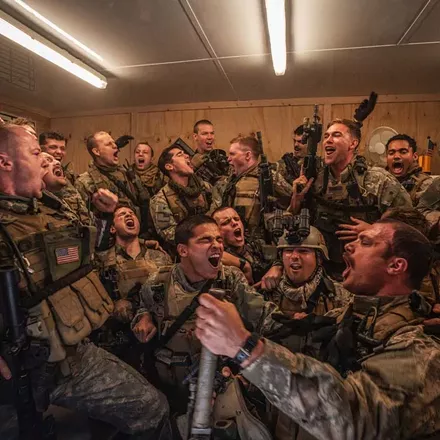The key phrase for the two main characters in this film would be something like, "What the hell is going on?" There definitely will be people in the audience uttering those words. And the story's ending will leave a lot of people feeling cheated.
That's just the ending, though. There are enough questions packed into this fast-moving 90 minutes that a satisfying answer isn't really all that necessary, because, in many ways, the emotionally dizzying ride of getting to that end will be enough.
An awful lot has already gone on by the time we're first introduced to sad-eyed, forlorn Telly (Julianne Moore), who has been mourning the loss of her young son, Sam, for 14 months and six days. She tells her shrink, Dr. Munce (Gary Sinise, wearing rather fashionable glasses) that she can be even more specific. The film's revelation that she spends most of her time looking through her plane crash victim's son's chest of drawers, or staring at family photos and videos, is enough to show that this is one distraught woman. Her relationship with her husband Jim (Anthony Edwards) has become strained, probably because he seems to have gotten over the tragedy already.
But then, just as this looks like it will be nothing more than a character study of someone trying to rebuild herself, a plot shift comes knocking. That's soon followed by another one, and another. And before the film is a half-hour old, viewers are not only wondering what the hell is going on, they're also trying to figure out exactly what genre this film falls under. Is it a mystery? A ghost story? Science fiction, or its harder-to-pinpoint cousin, speculative fiction?
It's a little bit of all of those, and for the most part, screenwriter Gerald Di Pego (Phenomenon, Instinct) and director Joseph Ruben (Money Train, The Stepfather) have done a good job in melding everything together into a story that, while completely unbelievable, is a treat to watch, if only for its outlandishness.
Right from the beginning, it's clear that Telly has a lot of problems to deal with, all relating back to the terrible loss of her son. She seems to be ready to go back to work -- editing a children's book, no less -- but is having trouble focusing. She's constantly misplacing things, from the cup of coffee she thought she brought to her therapy session to her red Volvo, which is just not where she says she parked it.
But then things start getting weird. Family photos of her, Jim and Sam turn into photos of just her and Jim, and they're huddled over to the side where Sam might once have been in the picture. Sam's scrapbooks are now filled with blank pages. She recognizes a fellow she bumps into on one of her head-clearing, solitary evening walks as Ash (British actor Dominic West, putting on a perfect New York accent), the father of a young girl that Sam used to play with -- another child who was lost on the same plane flight. But Ash has no idea who Telly is, nor Sam, nor, he says through a drunken stupor, has he ever had a daughter.
So what the hell is going on here?
That's not simply explained, but it's intriguing to watch. Ruben keeps his cinematographer, Anastas N. Michos, way up in the air, shooting down on characters who appear tiny and insignificant. He also keeps his crew and cast in the dark, literally: There's hardly any daylight in this film. It's mostly shot at night or within low-lit buildings. And to keep that kind of mood, he has veteran composer James Horner (with 144 film scores to his credit) making extensive use of murmuring violins in the background. And just as in Bernard Herrmann's similar experiment in Psycho, those ominous strings are not there to comfort anyone watching.
Layers of mystery build up, new characters are regularly introduced -- confused cops, mysterious Feds, one guy (Linus Roache) who's, shall we say, different from everyone else. The film sets up an interesting premise, and gets its sympathetic main characters both deeply involved and uncomfortably in over their heads. But despite the quick running time, the story -- which is punctuated by some startling visual effects that can only be appreciated on a big screen -- feels a little padded. There are a few characters and a few washed-out flashbacks that could easily have been eliminated without hurting the overall effect.
Of course, then the film would have been too short -- say about an hour -- just about perfect for a killer late-period Twilight Zone or a memorable episode of The X Files.


















